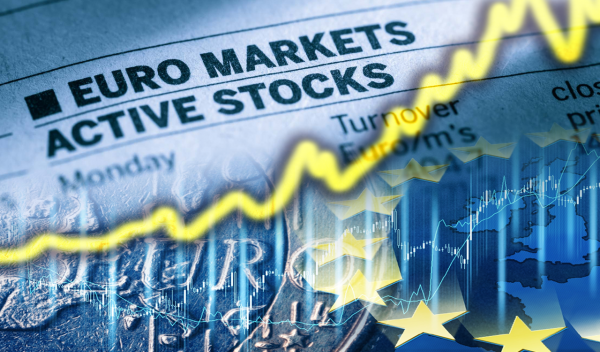
The de-escalation of TTF natural gas prices to the levels of 36 euros per MWh did not last long.
The market has found new reasons to trigger increases while Europe and Greece are gradually entering the winter season.
Natural gas contracts for the month of November last Friday, October 13, shot up to levels of 55 euros per MWh, rising to a three-month high.
The reasons
According to analysts, the 53% increase compared to the price of 36 euros per MWh at the beginning of the month is attributed on the one hand to the market’s concerns about a generalization of the conflict in the Middle East with potential effects on the crude oil market that may drag down the natural gas but also in the shutdown of the Balticconnector pipeline. It connects Finland to Estonia by transporting small amounts of natural gas and the shut-off came after the pipeline was found to be leaking. Suspicions of sabotage brought back memories of the Nord Stream sabotage, and concern over whether the energy infrastructure is secure has gripped everyone.
The Hamas attack on Israel and the leak in the Lower Baltic pipeline more or less coincided in time. The first event on Saturday the 7th of the month and the second took place on Tuesday the 10th of October.
Electricity prices
Despite the fact that natural gas storage facilities are full in Europe, the markets nevertheless react with uncertainty and insecurity to any small or large geopolitical event or to any even minor supply incident.
This nervousness was also reflected in the TTF.
Natural gas remains the dominant fuel for power generation. Therefore, any small or large increase in its price also drags with it electricity prices.
The estimates and factors of the Greek energy market want electricity prices on the Hellenic Energy Exchange and, by extension, on the bills of households and businesses to follow an upward trajectory.
After all, TTF natural gas contracts also point to a winter with tougher prices. For December they range above 57 euros per MWh and in January above 58.5 euros per MWh.
Latest News

German Ambassador to Greece Talks Ukraine, Rise of Far Right & Tariffs at Delphi Economic Forum X
Commenting on the political developments in his country, the German Ambassador stressed that it was clear the rapid formation of a new government was imperative, as the expectations across Europe showed.

Athens to Return Confiscated License Plates Ahead of Easter Holiday
Cases involving court orders will also be excluded from this measure.

Servicers: How More Properties Could Enter the Greek Market
Buying or renting a home is out of reach for many in Greece. Servicers propose faster processes and incentives to boost property supply and ease the housing crisis.

Greek Easter 2025: Price Hikes on Lamb, Eggs & Sweets
According to the Greek Consumers’ Institute, hosting an Easter dinner for eight now costs approximately €361.95 — an increase of €11 compared to 2024.

FM Gerapetritis Calls for Unified EU Response to Global Crises at EU Council
"Europe is navigating through unprecedented crises — wars, humanitarian disasters, climate emergencies," he stated.

Holy Week Store Hours in Greece
Retail stores across Greece are now operating on extended holiday hours for Holy Week, following their Sunday opening on April 13. The move aims to accommodate consumers ahead of Easter, but merchants remain cautious amid sluggish market activity.

Green Getaway Ideas for Easter 2025 in Greece
Celebrate Easter 2025 in Greece the sustainable way with eco-farms, car-free islands, and family-friendly getaways rooted in nature and tradition.

Civil Protection Minister Details Summer Firefighting Plans at Delphi Forum
At the 10th Delphi Economic Forum, Minister of Climate Crisis and Civil Protection Yiannis Kefalogiannis discussed Greece's plans for the upcoming fire season.

How Shops and Markets Will Operate During Easter Holy Week
The Easter holiday schedule has been in effect since April 10, with retail stores open Palm Sunday, and most supermarkets also operating to meet consumer demand for Easter shopping

Why Is the French Aircraft Carrier Charles De Gaulle in Piraeus?
Docking in Piraeus after a four-month deployment in the Indo-Pacific region, the admiral of the aircraft carrier the Charles de Gaulle says, "Greece is our best partner in the Mediterranean."








































 Αριθμός Πιστοποίησης
Αριθμός Πιστοποίησης